5 Owls Harry Potter Reread – The Sorcerer’s Stone
Yer a wizard…
Harry Potter and the Sorcerer’s Stone is the first book in the Harry Potter series. In it, the author, JK Rowling, introduced us to many of the characters, places and themes that we will see in the next 6 books.
Harry Potter is an orphan sentenced to living with his mean Aunt Petunia and Uncle Vernon, and their spoiled child, Dudley. On his eleventh birthday, Harry learns that not only does he have magical powers, but he will learn how to use them at Hogwarts School of Witchcraft and Wizardry. With this discovery, Harry’s world is completely changed. In the Wizarding world he is famous for being the one person who could not be killed by nefarious dark wizard, Voldemort. While at Hogwarts, Harry makes friends, begins to learn about his parents, and finds most of his teachers to be friendly and supportive. But not everyone is happy Harry has returned to this world…
We hope you had a great time reading the first book in this exciting series, and will join us in reading the next installment, Harry Potter and the Chamber of Secrets! Discussions for book #2 will be up in the middle of February. But for now, please enjoy discussing the events of this book in the comments!
- Did you like this book? Hate it? Did it remind you of something you’ve read or seen before?
- Which places in the book would you like to visit?
- If you could hear this same story from another person’s point of view, who would you choose?
- Were you surprised at what happened with Professor Quirrell? Were you suspicious of anyone else?
You might belong in Gryffindor,
here dwell the brave at heart,
Their daring, nerve, and chivalry
Set Gryffindors apart;
You might belong in Hufflepuff,
Where they are just and loyal,
Those patient Hufflepuffs are true
And unafraid of toil;
Or yet in wise old Ravenclaw,
if you’ve a ready mind,
Where those of wit and learning,
Will always find their kind;
Or perhaps in Slytherin
You’ll make your real friends,
Those cunning folks use any means
To achieve their ends.
- When the kids arrive at Hogwarts, the Sorting Hat sings a song describing the 4 Houses- Gryffindor, Slytherin, Hufflepuff and Ravenclaw- and their members. What House would you be sorted into?
What did we miss? Is there anything you would like to discuss or any questions you and your family had? Did you have a favorite quote or a favorite scene?
Please introduce them in the comments.
Follow us on social media:
We ask library patrons under 13 to participate in these discussions with adult supervision. We would like to encourage families to incorporate discussion questions into their at-home book chats. Discussions are open to first time readers, and super-fans, so please limit spoilers to the book currently being discussed and previous ones only. There will be a second post, later in the month for overarching theories and ideas, and for connecting what happens in this book to events in future installments.
Please be respectful.
Librarian’s Pick: Garden To Glass -Mike Wolf
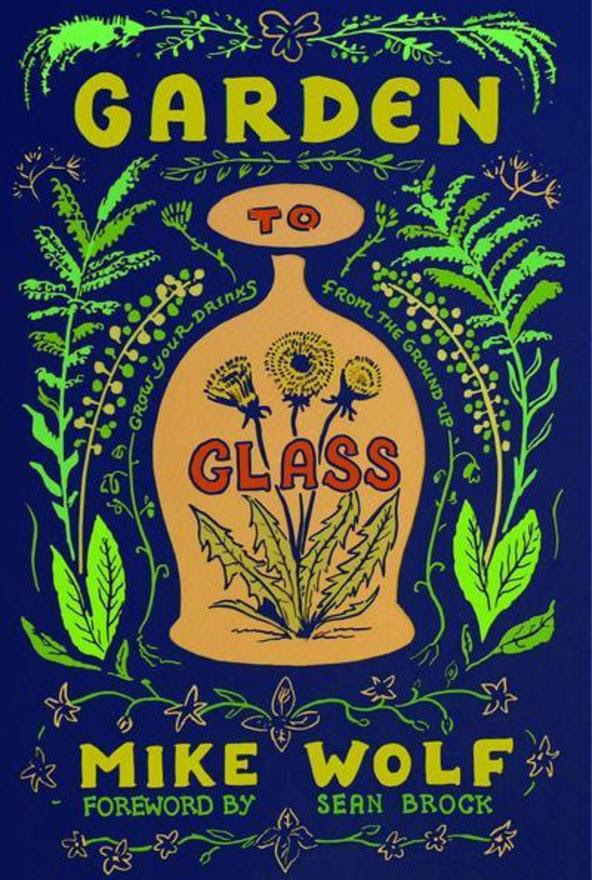
“Mike Wolf’s Garden to Glass, which explores the intersection of gardening, foraging and beverage design, offers instant appeal. Wolf, who worked with chef Sean Brock at Husk in Nashville, is a curious and passionate guide, taking readers into his garden and onto trails where he gathers ingredients for bitters, cordials, shrubs and more. These are featured in recipes that will enhance any bar program or make you one hell of a home mixologist. Beautiful watercolor illustrations and interviews with specialists give this study of botanical cocktails a dimension not achieved in other guides.”
Librarian’s Pick: The Innocents – Michael Crummey
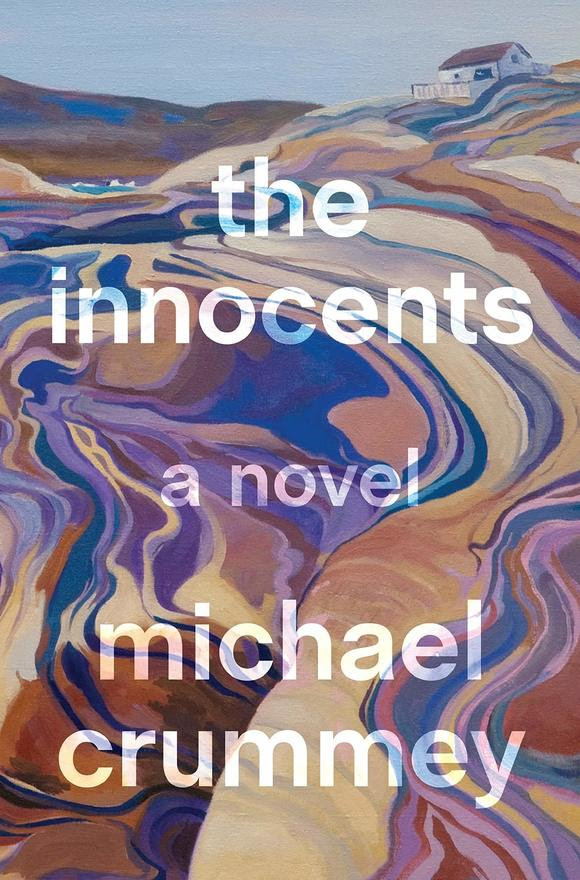 “Award-winning poet and novelist Michael Crummey’s work draws imaginatively from the history and landscape of his native Newfoundland. The Innocents, his fifth novel, is the riveting story of an orphaned brother and sister whose relationship is tested by hardship and isolation in 19th-century coastal Labrador.
“Award-winning poet and novelist Michael Crummey’s work draws imaginatively from the history and landscape of his native Newfoundland. The Innocents, his fifth novel, is the riveting story of an orphaned brother and sister whose relationship is tested by hardship and isolation in 19th-century coastal Labrador.
Ada and Evered Best live in a cove in the far northern province. Their home is a stretch of rocky coast with a simple shelter, and they survive with only the most rudimentary information passed down by their parents. The siblings support themselves by catching and salting cod, which they trade for supplies twice a year, as well as by tending a small garden and trapping the occasional animal for meat. The repetition of the changing seasons defines the pair’s existence—the breaking of the ice at the end of the long winter, the return of the cod, the annual gorging on the sweet berries that grow wild farther inland. As the years pass, their relationship changes, and when they enter puberty, their connection becomes more complicated. Though Ada and Evered once welcomed the occasional visitors who found their way to their coastline, their intimacy, developed in innocence, seems shameful in the light of even the most casual observation.
Crummey found the inspiration for the novel from an archival passage by a traveling clergyman who met an orphaned brother and sister living in a remote northern cove. When the clergyman approached them, the boy drove him away at gunpoint. Crummey has transformed this fragment into a richly fashioned story told with great sensitivity—one that is as credible as it is magical.
The Innocents reminds us of all the reasons we read—to understand, to imagine, to find compassion and to witness the making of art.”
Librarian’s Pick: Ordinary Girls – Jaquira Diaz
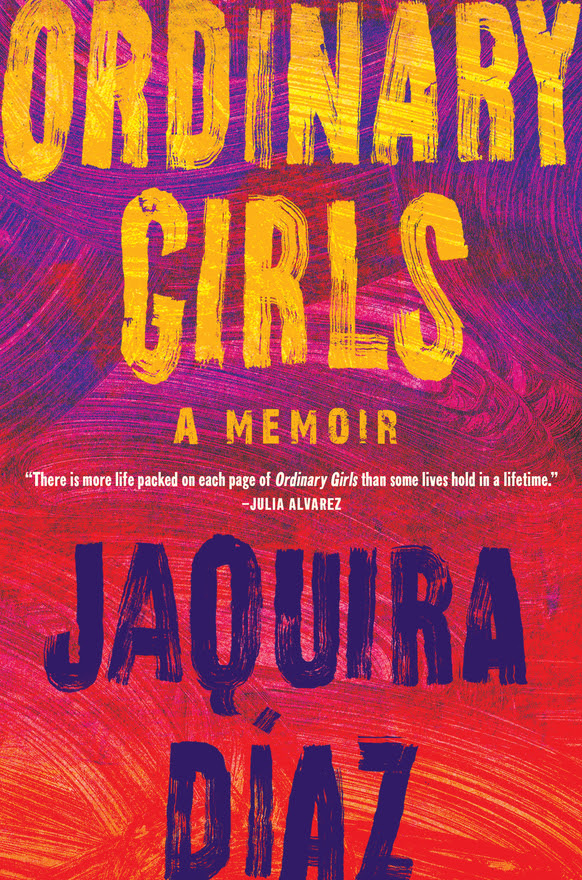 “Jaquira Díaz’s Ordinary Girls reaches deep into your heart and seizes your emotions from the very first sizzling paragraph. And as it carries you into some of Díaz’s darkest shadows and out into variegated light, it refuses to let go. In staccato sentences, Díaz walks us through her community: “We were the girls who strolled onto the blacktop on long summer days, dribbling past the boys on the court. . . . We were the wild girls who loved music and dancing. Girls who were black and brown and poor and queer. Girls who loved each other.”
“Jaquira Díaz’s Ordinary Girls reaches deep into your heart and seizes your emotions from the very first sizzling paragraph. And as it carries you into some of Díaz’s darkest shadows and out into variegated light, it refuses to let go. In staccato sentences, Díaz walks us through her community: “We were the girls who strolled onto the blacktop on long summer days, dribbling past the boys on the court. . . . We were the wild girls who loved music and dancing. Girls who were black and brown and poor and queer. Girls who loved each other.”
In fiercely honest prose, Díaz turns back every page of her life, starting with growing up in El Caserío Padre Rivera, the government housing projects in Puerto Rico, and sharing stories from there that she “never wants to forget.” In this world, Díaz learns about danger and violence and death, but she also learns about community. She yearns for a more loving family and home, but her mother and father can provide only a soundtrack of constant bickering and yelling. There’s no love lost between Díaz and her brother, who beats her and abuses her emotionally and whom she tries to kill with a steak knife.
When the family moves to Miami Beach, life looks a little sunnier because they’ve moved up financially, but only for a moment. Her mother and father split, and her mother sinks into addiction that’s exacerbated by schizophrenia. Díaz eventually escapes the violence through an early marriage, a stint in the Navy and enrollment in college and creative writing courses, though she never sheds her friendships, her family or her memories.
The stunning beauty of Díaz’s memoir grows out of its passion, its defiance, its longing, its love and its clear-eyed honesty. Díaz’s story hums with a vibrant beauty, shining a light out of the darkness that shadowed her life.”
Librarian’s Pick: The Starless Sea – Erin Morgenstern
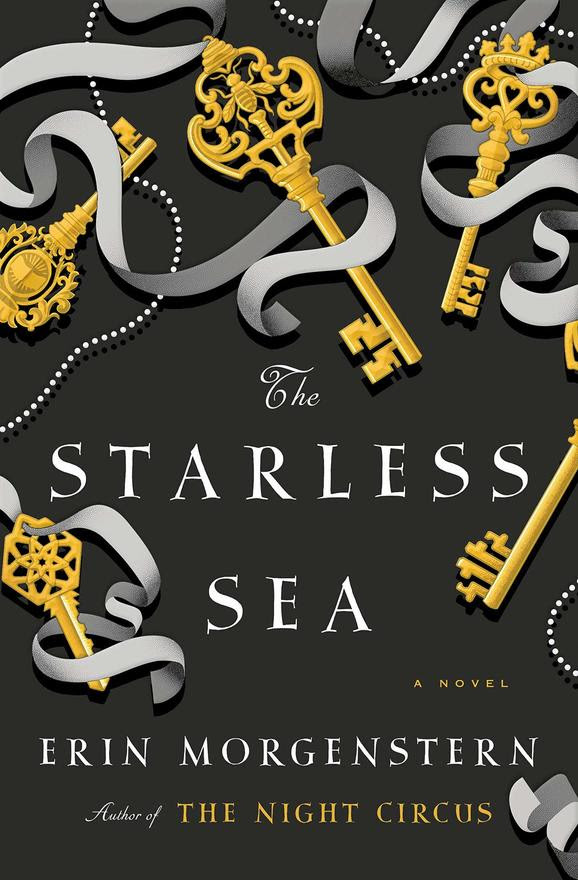 “As graduate student Zachary Ezra Rawlins contemplates which book to choose in his university library, he muses that reading a novel “is like playing a game where all the choices have been made for you ahead of time by someone who is much better at that particular game.” That’s certainly the case when the author in question is Erin Morgenstern, who mesmerized readers with her breakout debut, The Night Circus, and now returns with her highly anticipated second novel, The Starless Sea, a grand fantasy about books, the power of literature and storytelling.
“As graduate student Zachary Ezra Rawlins contemplates which book to choose in his university library, he muses that reading a novel “is like playing a game where all the choices have been made for you ahead of time by someone who is much better at that particular game.” That’s certainly the case when the author in question is Erin Morgenstern, who mesmerized readers with her breakout debut, The Night Circus, and now returns with her highly anticipated second novel, The Starless Sea, a grand fantasy about books, the power of literature and storytelling.
The mysterious book Zachary ends up choosing features him as a character and leads him on an epic quest, first to the Algonquin Hotel Annual Literary Masquerade in New York City and ultimately through a secret doorway to a subterranean realm where he finds pirates, an Owl King, fairy tales, a story sculptor and “an underground trove of books and stories beneath their feet.” Think Harry Potter for book lovers and grown-ups. (Zachary’s favorite drink is a sidecar, and he falls in love during his adventures.) There are literary references galore, as well as an undertone of video games. “Is that Zelda for Princess or Fitzgerald?” Zachary asks at one point. The response he receives: “Little bit of both.”
Paralleling Susan Orlean’s The Library Book, a nonfiction ode to books, libraries and librarians, The Starless Sea is a fictional journey dedicated to stories and storytelling. Both are lively, inventive titles chock-full of book-centric quotes.
This hefty novel requires imaginary leaps and careful attention to stories and characters that wind their way in many different directions, but Morgenstern—now proving not once, but twice, what an adept literary juggler she is—manages to weave a multitude of strands together into one mighty, magical tale.”
Librarian’s Pick: In The Dream House – Carmen Maria Machado
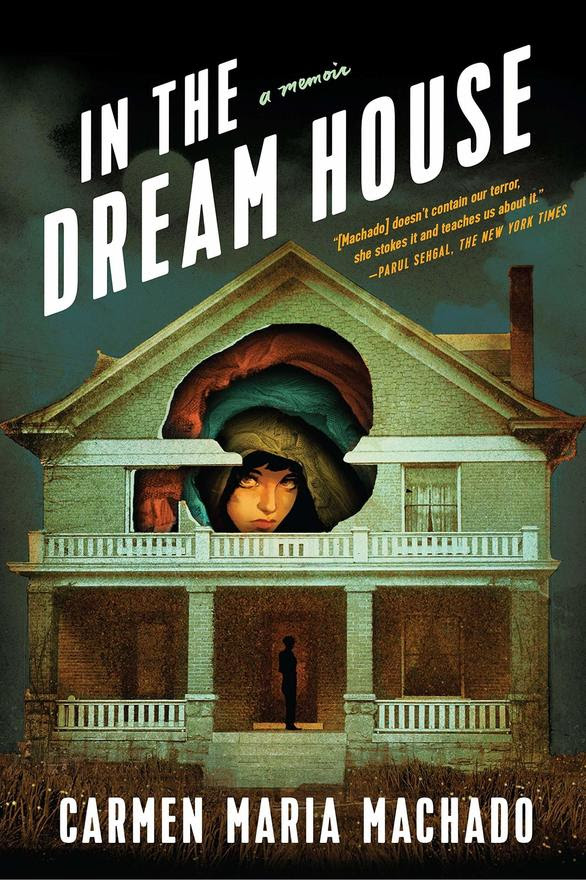 “Queer history is both old and new. We have been gay since the dawn of time, but only recently have queer people really started to speak our own stories into the historical record. The novelty of this—as well as the precarious lives many LGBTQ people still live—raises its own questions: Which stories do we tell? Relative to established narrative forms, where and how do they fit? What about the bad parts?
“Queer history is both old and new. We have been gay since the dawn of time, but only recently have queer people really started to speak our own stories into the historical record. The novelty of this—as well as the precarious lives many LGBTQ people still live—raises its own questions: Which stories do we tell? Relative to established narrative forms, where and how do they fit? What about the bad parts?
“I enter into the archive that domestic abuse between partners who share a gender identity is both possible and not uncommon, and that it can look something like this,” Carmen Maria Machado writes at the beginning of her stunning new memoir, In the Dream House. “I speak into the silence.” The book describes the arc of a romantic relationship turned sour, controlling and claustrophobic, the house of its title becoming a place where Machado locks herself in the bathroom while her girlfriend tries to break down the door.
To call it a memoir, though, is to give short shrift to the exquisite strangeness and formal innovation that Machado achieves. The author of Her Body and Other Parties—a National Book Award-nominated collection of stories combining elements of fable, fantasy, noir, erotic thriller, science fiction and fairy tale—Machado imports her fascination with genre into In the Dream House. Each of the book’s short chapters nods to some trope or narrative tradition that Machado is playing with—“American Gothic” or “Lesbian Pulp Novel.” This is a clever device, but it’s also a propulsive one, and occasionally leavening. One chapter is precisely one sentence long: “‘We can fuck,’ she says, ‘but we can’t fall in love.’” Its title is “Dream House as Famous Last Words.”
If this all sounds very metatextual, know that Machado has pulled off an amazing feat: a book that comments on its own existence and the silences it endeavors to fill; a work deeply informed by a sense of identity and community; and page after page of flawless, flaying, addictive prose. In the Dream House is astonishingly good.”

